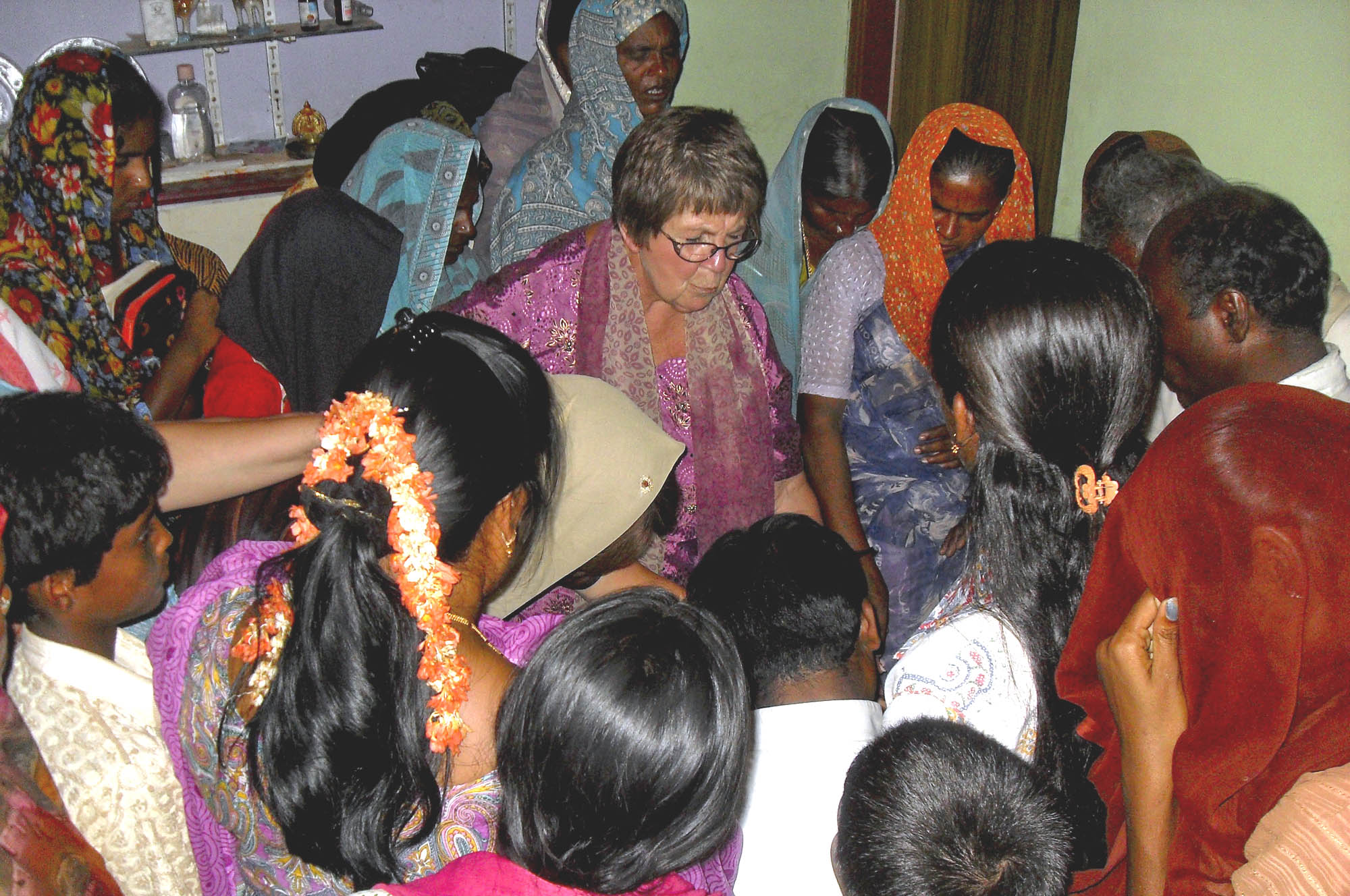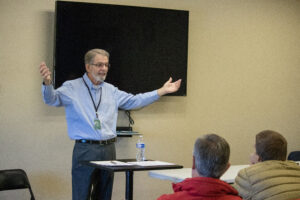
INDIA (BP)–Multiple sets of dark eyes peered from the shadows of the small, colorful concrete homes lining the narrow dirt path. The team of Americans smiled and nodded as they passed the darkened doors, keeping one eye on the ground as they stepped gingerly over the occasional pile of animal dung. Flies swarmed, goats munched and cows lay peacefully just outside the front doors, as if the homes they guarded belonged to them.
“The Dalit live on this side of the road,” explained Devadas Kumble,* a local pastor who coordinated the American volunteer mission team’s activities. “Higher castes live on the other side of the road.”
From where they stood, the volunteers saw little difference between the two sides of the village. On both sides, the roads were unpaved, the homes were modest and the livestock roamed freely. To the Dalit, however, the invisible line separating them from the higher castes was as impregnable as a castle wall.
The Dalit are India’s “untouchables,” numbering more than 166 million people in the 2001 Indian Census. They are the most marginalized members of Indian society, a caste so low they are not even included as one of the four defined by Hindu tradition.
The team of Americans knew little about the difficulties suffered by those they greeted as they walked the narrow path of this village. Not bound by centuries of caste division and cultural expectations, the team came simply to offer free medical and dental care to people from any caste. In fact, at the end of one long day, a high-caste village official stopped the van of volunteers. The official asked why the team was only offering the clinics to the Dalit.
“I told him that the clinics were for both high- and low-caste people and invited him to come,” Kumble said. “But he didn’t want to take medicines along with low-caste people.”
LOW-CASTE SYSTEM
Much like the days of segregation in the pre-Civil Rights South in the United States, Indian cultural norms divide the Dalit from the high castes. In this village, as in many others, the Dalit are confined to one section and must not mingle with the high-caste for fear of contaminating them.
“One of our church members is essentially being treated as a slave by some of the high-caste members of his village,” said Priya Kumble,* the pastor’s wife. “They make him do odd jobs for them, but they don’t allow him into their homes.”
A 2010 study by Amnesty International cites more extreme examples of discrimination and violence, including the case of four Dalit who died of starvation in 2009 after the dominant landholding castes denied them access to food and water. In addition, 300 people were left homeless after an intentional fire destroyed 74 Dalit homes in 2009.
In a country where, according to India’s National Crime Records Bureau, more than 90 Dalits are victims of crime every day, the higher-caste Kumbles work to resist violence and discrimination against the untouchables. At the churches the couple starts, they battle against longstanding prejudices by encouraging the Dalits and high-castes to worship side-by-side.
While the Kumbles are concerned by the inequalities inherent within India’s centuries-old caste system, the volunteer team, like most Americans, was baffled by it.
“Can’t they simply move somewhere else and tell people they are a different caste?” asked volunteer Debbie Williams, who attends Faith Promise Church in Knoxville, Tenn.
The Kumbles explained that if better opportunities were available, most Dalits were ill equipped to escape the cycle of illiteracy, poverty and injustice that have characterized their lives for centuries. Amnesty International reports that Dalit have difficulty accessing health, education and legal services due to physical attacks, discrimination and social boycotting by higher castes. The Kumbles’ ministry works to improve the standard of living among the Dalit, conducting literacy classes and health awareness programs in rural villages. They hope their efforts promote equality among the castes while showing God’s love is for everyone.
TOUCHING THE UNTOUCHABLE
While the team’s medical work among the Dalit appalled some high-caste people like the village official, others applauded it. High-caste congressional representatives and local police attended a clinic at the Kumbles’ home. Some simply observed while others received medical treatment. Regardless of caste, the team greeted each patient with a smile and a gentle touch.
Ginger Wallace, a music assistant from Wallace Memorial Baptist Church in Knoxville, who assisted in the dental clinic, noticed a visible reaction from the untouchable women as she led them by the hand to their place in line.
“Every woman wanted her friends to see that I was touching her,” Wallace said.
In a society where untouchables must drink water from their hands rather than defile the glass or cup for anyone else, Wallace’s touch was significant in more ways than one. One notable example involved a high-caste Hindu man named Aditya Attimarad.*
Devadas Kumble hired Attimarad to drive the team of volunteers. Initially, Attimarad kept his head bent, rarely smiled and spoke little as he drove to and from villages. After one of the clinics, Harshal Banagar,* a young Indian Bible student who assisted in the clinics, scooted in close to Attimarad in the front seat of the van and shared the Gospel. Attimarad listened closely as he drove the team. Once the van arrived at the hotel, Wallace and Susan Martin, a behavior specialist who is also a member of Wallace Memorial, noticed Attimarad’s demeanor was dramatically different. He smiled. He waved goodnight.
“Sweet dreams!” Attimarad called out.
Two days later at the conclusion of the last clinic, the team gathered in a circle with the Indian pastors and all who assisted in the clinics throughout the week. For the first time, Attimarad joined the group. They prayed and thanked Jesus for the privilege of serving together. They sang a song of blessing. They held hands.
The next day, Attimarad called Devadas Kumble aside.
“I want to be a follower of Jesus,” Attimarad said. “That team loved all the people, and they touched all the people, even the untouchables.”
“He saw something different in us, and he wanted it,” Wallace said.
It was a touch that made the difference.
–30–
*Names changed. Tess Rivers writes for the International Mission Board.















